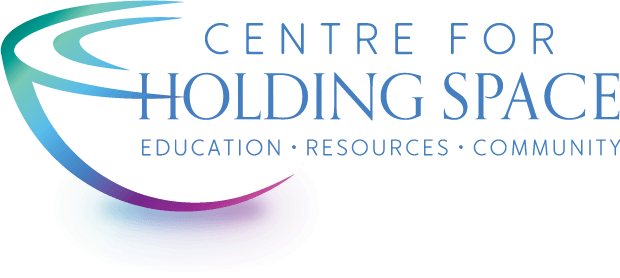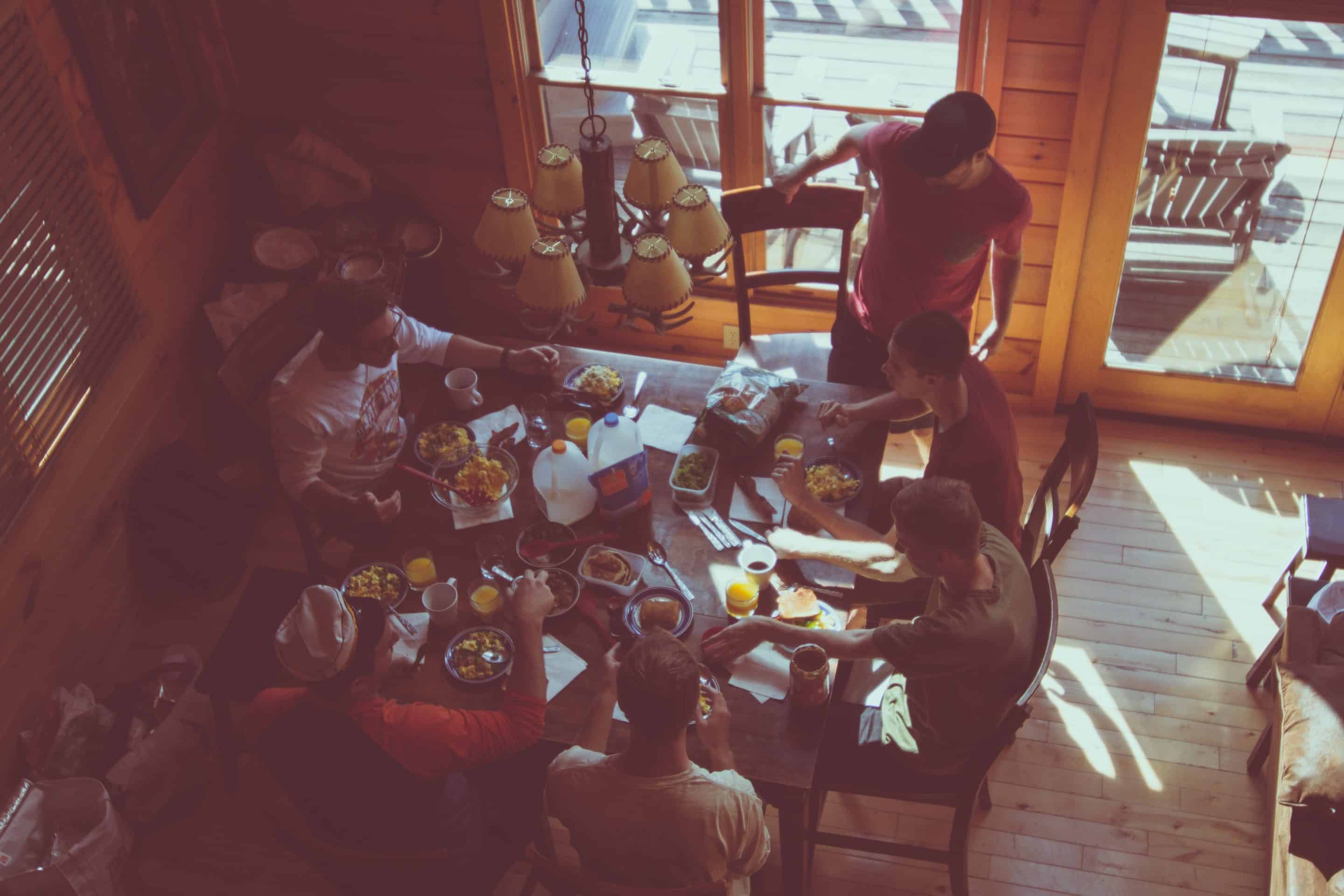Listen to me read the post:
In the movie Don’t Look Up, two scientists (played by Jennifer Lawrence and Leonardo DiCaprio) try to convince the public that an astroid is about to hit and, unless some action is taken to mitigate the threat, the earth is about to be destroyed. They have little success in their urgent mission and, at the end of the movie (spoiler alert) there’s nothing more they can do so, as the astroid hurtles toward them, they sit down together with their friends and family to enjoy a final meal.
Earlier this week, when our newly formed community for A Full-Bodied Life gathered on Zoom, there was a moment when it dawned on me that that is perhaps what we are doing at the Centre for Holding Space – gathering people around the dinner table while the earth is burning. At that table, there is some lightheartedness, some laughter, some sadness, some determination, and some resignation that our species may not survive the climate chaos that seems to be increasing on a daily basis.
Our calls for this program are different from when we teach courses. Instead of preparing an agenda, we’re holding the container lightly and allowing the conversation to emerge from whatever is on the hearts of the people who show up. Using Open Space technology, we invite people to identify the topics they want to discuss, and then everyone chooses their breakout room based on which of the topics they most want to be in conversation about.
In the topics that emerged, there was that “dinner table” mix of joy and despair, hope and grief. People wanted to talk about generating more generosity of spirit, integrating the pandemic into our personal lives and the big story of who we are now, learning about joy alongside animals, and dealing with toxic positivity. After the breakout rooms were over and we reconvened in the larger room, we noticed how, even though the topics were different, there was some weaving together of themes.
“Lighthearted liminality,” is what Kelly Townsend offered, summing up some of the thoughts about how we were collectively determined to speak of joy despite the fear and grief we were simultaneously holding. That’s what it feels like we’re doing in this program – finding a way to embrace joy, awe, wonder, gratitude, liberation, tenderness, and peace, while also holding sadness, overwhelm, despair, and all of those other feelings that come with this unfamiliar liminal space.
If you’re worried that I have suddenly become a doomsday person, resigned to the fact that we are living in apocalyptic times… no, that’s not what I’m suggesting. I don’t think I’ll ever entirely let go of hope, even when there’s little evidence that it is merited. I am, by nature, a person who leans toward optimism and I expect to stay that way. But my optimism doesn’t look like toxic positivity or spiritual bypassing. I will not hide my head in the sand and pretend that there is nothing concerning about the fact that we’ve recently had a series of some of the hottest days ever recorded on the planet and there are more and more weather-related catastrophes every year.
Recently, on my morning walk along the river (a walk I take to ground myself and remind myself that I am part of nature), I listened to the poet Marjolijn van Heemstra interviewed on a podcast, and she talked about the possibility of human extinction. “How bad is it actually to die out as a species?” she said. “That’s a question that I’ve been thinking about a lot. I don’t know. And that also comforts me in a way that I think, ‘Well, maybe… dinosaurs died out.’ You have all these tech billionaires saying, ‘We have to go to another planet to save our species.’ But how generous would it be to just die and say, ‘Well, let’s see what comes after.’”
Her words had a surprising comforting effect on my body as I walked. Indeed… what if we face the future with acceptance instead of despair? What if we gather our people around the dinner table, and we nourish ourselves and love each other as long as we possibly can?
I am determined, in the face of what has the potential to shut me down with worry, to face the future the way that my friend Randy faced his death last year, when ALS was ravaging his body. “I’ve laughed harder in the last six months than I think I’ve ever laughed,” he said, six months after receiving his diagnosis and shortly after signing the papers for medically assisted death.
What did he do in that last year of life when he knew he was heading toward death? He gathered his people around him, much the way they did in the movie, and told them what they meant to him. He loved hard and he laughed well. While his hands still worked, he finished the cross-stitch project he’d started years ago for his grandson, and sat with his son while they completed a collaborative art project. He gave away some of his meaningful belongings to people he loved. He watched curling on TV with his wife, just as they had always done. He planned his funeral and picked out a plot in a graveyard overlooking the water. He carried on his practice of contemplative prayer and read and re-read the poetry collection I sent him. He reflected on what he still had to learn about living and dying. “When my body is done on this earth,” he told me, “I expect to be released into pure joy.”
Randy made a very deliberate choice to spend his remaining days at peace. When I asked him about that choice, he told me that, in his lifelong career as a minister, he’d been with a lot of people who were dying and he’d seen some that fought it to the end and spent their last days in bitterness and fear, and others who’d accepted it and spent their last days in peace. “Years ago,” he said, “I made the choice that when it was my turn, I’d choose peace.”
Just as Randy did, we each have a choice how we’ll face this uncertain future. We can face it with despair, worry, resentment, and fear, or we can gather around the dinner table with our people, lean into the practices that help soothe and centre us, nourish ourselves, rest, step into the activism that feels meaningful to us, and intentionally choose tenderness, joy and connection.
I know which choice I’m going to make. Join me at the table.

